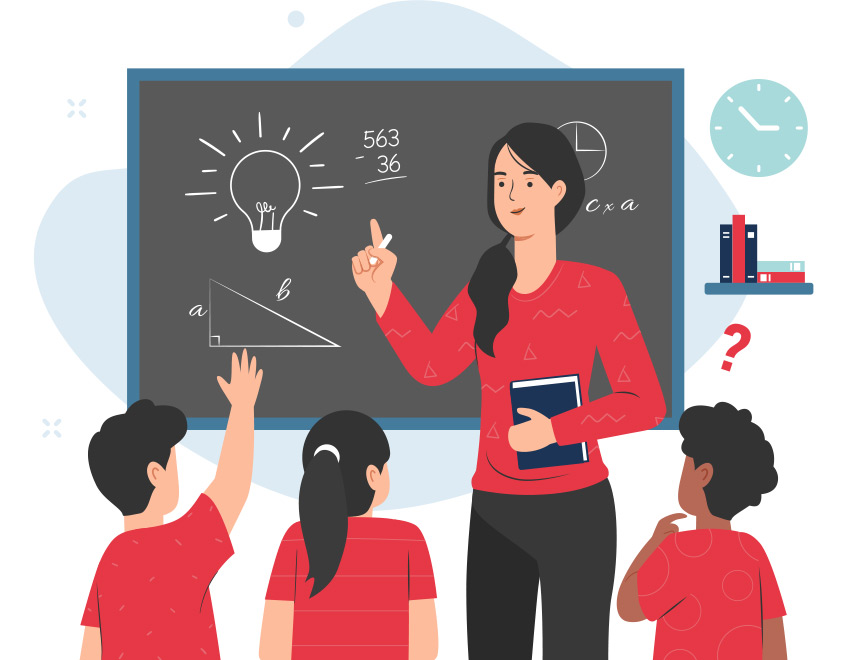Get Top Results with Primary Science Tuition Singapore from Experienced Tutors
Get Top Results with Primary Science Tuition Singapore from Experienced Tutors
Blog Article
Checking Out the Different Mentor Techniques in Primary Science Education And Learning Today
The landscape of main scientific research education and learning is evolving, with numerous mentor approaches acquiring importance in contemporary class. Inquiry-based discovering, hands-on experiments, and the assimilation of modern technology are redefining how educators involve young minds. Additionally, collaborative techniques and differentiated direction are being utilized to accommodate the varied needs of trainees, improving both engagement and understanding. As we analyze these methods, questions develop concerning their performance and the implications for future instructional methods. What might these shifts in approach mean for the future generation of students?
Inquiry-Based Discovering
Inquiry-Based Learning (IBL) is a pedagogical method that encourages pupils to discover clinical principles via doubting, investigation, and hands-on experimentation. This approach highlights the role of students as energetic individuals in their learning, promoting critical reasoning and problem-solving abilities. By involving with real-world concerns, pupils come to be inspired and curious, which boosts their understanding of clinical concepts.
In IBL, educators work as facilitators, guiding trainees as they navigate their inquiries as opposed to delivering information directly. This student-centered technique enables for differentiation, accommodating various learning styles and rates. Students establish skills in developing hypotheses, designing experiments, and examining information, which are important for scientific proficiency.
In addition, IBL promotes collaboration among students, encouraging them to share searchings for and ideas. This collective questions advertises social abilities and a sense of community within the class. The process of query urges strength, as trainees find out to accept failure as a stepping rock toward understanding.
Hands-On Experiments
Hands-on experiments are an important element of effective science education and learning, enhancing the principles of inquiry-based understanding. These experiments enable pupils to involve straight with scientific concepts, promoting a much deeper understanding through experiential knowing. By controling materials and observing end results, young students can realize abstract concepts in tangible means.
Such activities advertise crucial thinking and problem-solving abilities, as trainees assume results, conduct experiments, and assess results. This procedure encourages them to ask inquiries, refine their understanding, and establish a scientific state of mind. Furthermore, hands-on experiments can be customized to varied knowing styles, guaranteeing that all pupils have the possibility to engage meaningfully with the content.
In addition, hands-on experiments commonly urge cooperation amongst peers, advertising teamwork and interaction skills. Working in groups allows pupils to share concepts, review searchings for, and pick up from each other, which enhances their total instructional experience.
Including hands-on experiments right into the primary science educational program not only improves the learning atmosphere yet likewise grows a lifelong interest in science. By proactively taking part in their education, students are more probable to create an interest for clinical query that extends past the class.

Technology Integration
Integrating modern technology right into key science education and learning has ended up being significantly important in fostering student involvement and boosting learning outcomes. Using electronic devices, such as interactive simulations, digital laboratories, and instructional software program, provides pupils with opportunities to explore clinical concepts in ingenious ways. These resources promote a much deeper understanding of intricate visit our website topics by enabling learners to picture and control variables that would be not practical in a standard classroom setup.
Furthermore, modern technology combination motivates individualized learning experiences. Students can progress at their very own rate, taking another look at difficult principles through multimedia resources, which cater to various knowing styles. This adaptability not just supports private growth however likewise cultivates a sense of autonomy in learners.
Additionally, innovation acts as a bridge to real-world scientific research, linking students with present study and professional contributions. Accessibility to scientific journals and on the internet data sources expands pupils' viewpoints on clinical query and cultivates essential assuming skills.
Collaborative Knowing
Joint learning plays an essential role in primary science education by fostering teamwork and communication abilities amongst pupils. This approach motivates learners to function together, share knowledge, and take part in analytical, which improves their understanding of clinical principles. By joining group tasks, trainees find out to express their ideas, listen to varied point of views, and discuss remedies, all of which are crucial skills in both academic and real-world contexts.

Study indicates that collaborative understanding can result in enhanced inspiration and interaction in scientific research topics, check it out as students find satisfaction in shared experiences (primary science tuition Singapore). Additionally, this method prepares pupils for future collective endeavors, equipping them with the skills needed for effective teamwork in college and expert environments. Ultimately, accepting joint discovering in main scientific research education and learning can considerably enrich the understanding experience and promote a much deeper understanding of clinical questions
Differentiated Instruction

Set apart instruction can show up in numerous means, such as differing the web content, processes, or products of knowing. For instance, educators may make use of tiered jobs that give differing levels of intricacy, enabling pupils to operate at their particular preparedness degrees. Furthermore, versatile grouping approaches can facilitate cooperation amongst pupils with different abilities, fostering peer knowing.
Assessment plays an essential role in this method, as it notifies guideline and assists instructors comprehend each trainee's unique needs. Developmental analyses, such as tests and observations, can direct teachers in adjusting their techniques to improve learning outcomes. primary science tuition Singapore. Ultimately, by carrying out distinguished guideline in primary scientific research education, instructors can grow a much more equitable and reliable understanding environment, empowering all pupils to reach their complete capacity in comprehending clinical sensations
Conclusion
In summary, the varied mentor methods in main science education and learning, consisting of inquiry-based knowing, hands-on experiments, modern technology combination, collaborative understanding, and differentiated direction, collectively add to an extra efficient knowing setting. These techniques promote vital reasoning, analytic abilities, and a much deeper understanding of scientific principles. By implementing these strategies, instructors can produce engaging and helpful class that deal with the different demands of students, ultimately fostering a long-lasting passion in scientific research and enhancing scholastic success.
Inquiry-Based Learning (IBL) is an instructional strategy that urges trainees to explore scientific ideas with doubting, examination, and hands-on trial and error.Collaborative learning plays an important duty in primary science education by fostering team effort and interaction skills amongst students.Study indicates that joint understanding can see this here lead to boosted motivation and interaction in science subjects, as trainees locate satisfaction in common experiences.In promoting a comprehensive knowing setting, differentiated instruction arises as an essential technique to accommodate the varied demands and abilities of students in primary scientific research education. Ultimately, by applying differentiated direction in key science education and learning, educators can cultivate an extra efficient and equitable understanding environment, equipping all pupils to reach their complete possibility in recognizing clinical phenomena.
Report this page